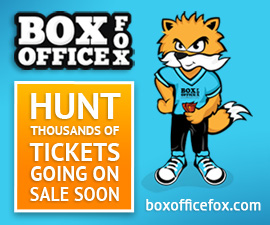TMPresale.com has just posted the most recent Burt Block Party feat. Tom Cochrane, Streetheart, & Sass Jordan presale password!!
This is your best chance to buy tickets to watch Burt Block Party feat. Tom Cochrane, Streetheart, & Sass Jordan ahead of the public :D
You won't want to miss Burt Block Party feat. Tom Cochrane, Streetheart, & Sass Jordan's show in Winnipeg do you? We believe that tickets may sell out when they go on sale: during the presale you can acquire your tickets earlier than they get released to the public.
Burt Block Party feat. Tom Cochrane, Streetheart, & Sass Jordan performance information:
Burt Block Party feat. Tom Cochrane, Streetheart, & Sass Jordan
Burton Cummings Theatre
Winnipeg, MB
Sun, Aug 25, 2024 05:00 PM
Onsale to General Public
Begins: Wed, 05/01/24 10:01 PM CDT
Finishes: Sun, 08/25/24 05:00 PM CDT
All Access Presale
Begins: Wed, 04/17/24 10:00 AM CDT
Finishes: Fri, 04/19/24 09:59 AM CDT
Artist Presale
Begins: Wed, 04/17/24 10:00 AM CDT
Ends: Fri, 04/19/24 09:59 AM CDT
Downtown Biz Presale
Start: Wed, 04/17/24 10:00 AM CDT
is finished: Fri, 04/19/24 09:59 AM CDT
Our members can use the presale passwords and information to order tickets:
Join right now and you'll instantly unlock the presale codes you need to buy your tickets early to this event and thousands of other shows too!
Buy tickets online.


















